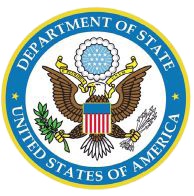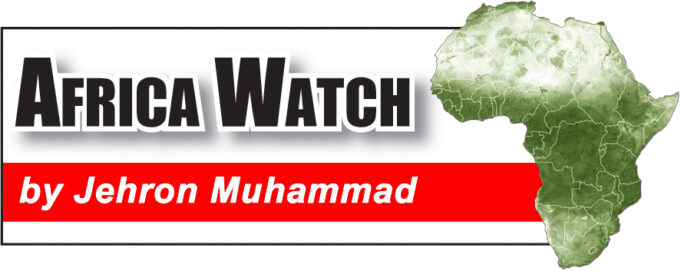America and its growing history of incompetence in failed state building in foreign lands is like a father uprooting and leaving babies he is no longer willing to care for. Afghanistan is the United States’ current example of the “Papa was a rolling stone” analogy. Before that we had South Sudan, another failed U.S. nation state building venture. And to continue with the rhythm and blues group The Temptations analogy, “Wherever he (America) laid his head was his home/And when he died, all he left us was alone.”
This history of packing up and leaving troubled, war torn nations to fend for themselves is part of America’s history of making false promises—and it helps feed anti-U.S. sentiment. It’s also the U.S. hidden-in-plain-sight inability to act on foreign soil without leaving death, destruction, incompetence and lack of infrastructure in its wake.
July 8, 2021, marked South Sudan’s 10th year of independence. The world’s newest country seceded from Sudan and attained full independence on July 9, 2011, ending a protracted civil war. Yet, according to the U.K.-based standard, “to say South Sudan’s independence ended the internecine war is to err. It simply transferred it to the new nation.
Ideological differences between (the fedora wearing) President Salva Kiir and Vice President Riek Machar resulted in Machar being fired in 2013. What followed was ethnic strife between the Dinka and Neur tribes that has left the country devastated. Over three million South Sudanese were displaced while over 300,000 lost their lives.”
U.S. President Barack Obama said the 2011 referendum on dividing what was then Africa’s largest country was a “new chapter in history.”

Mr. Obama said the decisions of Sudan’s leaders would determine whether its people would move “toward peace and prosperity, or slide backwards into bloodshed.”
Susan Page was South Sudan’s first U.S. ambassador.
According to a recent interview published in thenationalnews.com, she had seen warning signs of some of the issues South Sudan would face during the U.S. development of the Comprehensive Peace Agreement in the early 2000s.
The agreement ended a 22-year civil war with northern Sudan and outlined a path to a referendum on forming a separate nation six years later. But the former U.S. ambassador wasn’t confident the peace agreement would hold long enough for the South to make it to the vote.
“I was pretty skeptical that they would actually get to the referendum,” Ms. Page said.
She knew the players, problems and quickly realized that even if the referendum took place, it would not be a panacea.
“I had witnessed the parties, the southerners in particular, during meetings, for instance, with the assessment and evaluation commission, and just how woefully underprepared they were,” Ms. Page said.
“The South had been neglected for decades. On top of establishing a government and state institutions necessary for any country, it had to build infrastructure, procure electricity and deal with the long established divides between its various sects and tribes,” observed thenationalnews.com.
State Department and U.S. Agency for International Development officials, as well as senior congressional staff and former senior officials, participated in a significant event in 2018. Some had devoted decades of their careers to work on South Sudan. The event was hosted by the Atlantic Council, a Washington-based think tank, according to Foreign Policy magazine.
“There are people who have worked on South Sudan for decades,” said Joshua Meservey, an Africa expert at the Heritage Foundation. “They poured their professional lives into the Sudan and southern Sudan conflict, and South Sudanese independence was seen as this extraordinarily hopeful moment. For it to go so spectacularly wrong so quickly was a very disillusioning moment for these people.”
The parting of ways appears to have been in 2018 as the Americans, at the Atlantic Council meeting, scoffed at and castigated Taban Deng Gai, the first vice president of South Sudan, as he tried to assure them without success that the latest peace plan among Southerners would stick.
UNICEF warned of problems ahead of the 10th anniversary of the country’s independence. In a report on the impact of the humanitarian crisis on children, UNICEF said hopes that independence would bring a new dawn for the country’s children had faded. Bouts of violence and conflict, recurring floods, droughts and other extreme weather events fueled by climate change, and a deepening economic crisis have led to extremely high food insecurity, and one of the world’s worst humanitarian crises. A peace agreement, which has only partially been implemented, has so far failed to remedy challenges facing the country’s children and young people.
And if their history is an indicator, President Kiir, wearing his gifted by President Bush fedora, and Vice Pres Machar will revive their ongoing animosity and be back at each other’s throats in no matter of time.
But why divide the country in two in the first place, other than to squash the Islamic north and rob them of access to Southern Sudan’s natural resources? There were problems, but a relationship between the Northern Sudan and its infrastructure, including a pipeline for oil and ports for shipping, and the landlocked South with its natural resources represented a natural marriage. Until a no-good man personified by the U.S. destroyed that potentially mutually beneficial bond.
Follow @jehronmuhammad on Twitter.













